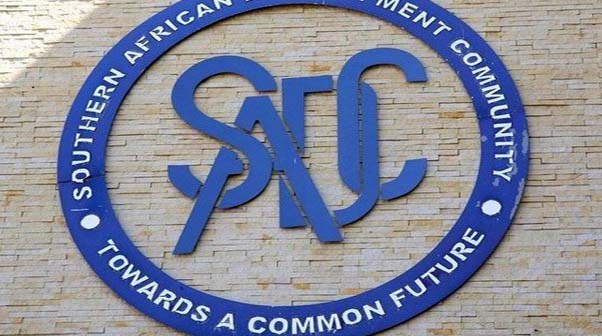Zesa prepaid system woes hit consumers hard

Rumbidzai Ngwenya and Samantha Chipoyera Features Writers
Egrina Magura (25) had come all the way from Unit O Seke, in Chitungwiza, about 35km south-east of the capital to purchase pre-paid electricity tokens which are unavailable now owing to a breakdown of the Zimbabwe Electricity Transmission and Distribution Company (ZETDC) prepayment system.
She had been on a long winding queue at ZETDC banking hall along Wynne Street for about two hours, just to buy an electricity coupon.
With her baby strapped on the back, she looked exhausted and stressed.
Magura had gone for two days without electricity as she could not purchase electricity coupons at Zesa agents closer to her home or using her mobile phone because of a technical fault on the ZETDC prepayment system which had been down for several days.
For her, as a chicken breeder, loss of electricity hit her business badly.
“I sell chicken cuts at home and had just slaughtered 30 birds on Monday. I usually buy electricity on my phone anytime of the day and never thought it could be this stressful,” said Magura.
“Since Tuesday, I have been trying to get electricity coupons from agents but with no luck, and my neighbour just advised me to come here (Wynne Street). As I speak I have just thrown away 30 birds worth about $210 after they had gone bad.”
Lack of power has badly affected her own small business. She has to start from scratch.
“For a small trader like me, it means I have to start from scratch and I don’t know if I can ever be able to run the business again,” she said bitterly.
For the past few days many Zimbabweans have gone without electricity as most ZETDC prepaid electricity vending services nationwide have been down.
This has forced many people to come from as far as Chitungwiza, Glen View, Mufakose and other suburbs to buy electricity tokens in the capital.
The power transmission and distribution utility has not even issued a notice to consumers.
Some have even tried reputable supermarkets in their suburbs and the Harare CBD with no luck leaving them with no choice but to queue at the ZETDC banking hall along Wynne Street which was selling the tokens.
Prepayment technical faults have left small traders like Magura bankrupt and stranded.
Most of the affected electricity consumers will find it difficult to recover from the loss.
Harare residents are bitter over the failure by the power transmission and distribution to correct the technical fault within a short period.
Most said technical faults should not take long to be fixed to minimise the impact on electricity users.
“Every business faces technical challenges, but as a company if you take long to address them then you are failing your clients.
“More than two days without electricity is more than what people can bear, imagine medication and meat that needs refrigeration.” said Tafadzwa Kupikwa of Braeside.
Another angry consumer said prepaid electricity tokens should be made more available and easy to buy even from street vendors.

ZETDC has issued a statement advising its customers countrywide on the technical challenges the prepaid electricity vending system is experiencing
“We should be able to buy electricity tokens easily as much as we buy airtime in the streets. They must be sold in every shop. ZETDC should upgrade its systems” said Cleopas Tsodzo of Eastlea.
“Imagine coming all the way from Glenview 7 to buy $5 electricity token in the CBD, the cost and the time is not worth it. Even if there are technical challenges ZETDC should have at least one selling point in every suburb.”
Residents also said energy was important in the day to day running of their lives and businesses hence it should never be deprived from people.
They said ZETDC should have communicated with its customers, letting them know what was going on and where they could be assisted locally.
“In urban areas electricity is life. We need to be informed on time if the system breaks down. We should be notified in advance so that we can plan and buy electricity coupons in bulk. Alternatively, ZETDC should make arrangements that ensures we are not disadvantaged,” said Kumbirai Masocha of Glen View.
“They did not even tell us where we could be assisted in our areas so we are just coming to town. As the situation stands we are being inconvenienced. ZETDC should improve its public communication channels.”
Meanwhile, ZETDC has issued a statement advising its valued customers countrywide on the technical challenges the prepaid electricity vending system is experiencing.
In the statement, ZETDC acknowledged the inconveniences caused and urged people to access normal services from selected banking halls nationwide as the technical team was working flat out to restore normal services.
The selected points are contained in the statement issued to the press.
The Ministry of Energy and Power Development successfully launched the prepaid metering technology in 2012 that replaced the conventional billing system that had been posing challenges to ZETDC, a subsidiary of ZESA Holdings.
To date a lot of customers have migrated to prepaid meters.
The smart/prepaid metering resulted in consumers changing their usage behaviour to efficient use, with the meters bringing benefits that encompass consumers monitoring their own electricity usage and complete control of their budgets.
Paying for electricity was also made easier as electricity could be purchased from more outlets such as supermarkets and shops.
ZETDC, a unit of Zesa Holdings, is owed $1,05 billion by defaulting domestic, mining, industrial and business consumers that are still on the post-paid electricity system.
The prepaid metering system deducts about 20 percent from prepayments by defaulting customers and is now ZETDC’s main debt collection strategy.
Zesa plans to install 800 000 pre-paid and 140 000 smart meters this year helping to save some $120 million by year end.
More than 136 000 customers on post paid metering owe amounts as high as $1 000, while 56 000 customers owe between $1 000 and $5 000.
Smart metering system has enhanced revenue collection for the power distribution and transmission utility .
ZETDC deals in the distribution and retail of electricity to the final end user.









Comments